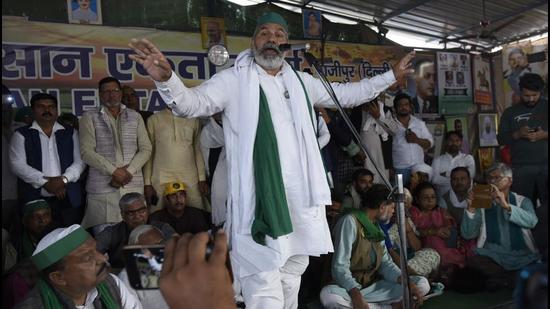Where the State failed to build a credible case for agricultural reforms
An IANS-CVoter survey, conducted after the laws were repealed, found that while a majority supported farm laws, around 70% of respondents believed farmers were justified in asking for MSP to be extended to fruits, vegetables, and meats
With the government deciding to repeal the farm laws in the winter session, it is worth examining the political roots of the withdrawal.

Detractors of the farm protests framed the opposition to the farm laws as driven only by a small subset of farmers in the states of Haryana, Punjab and Uttar Pradesh. But this position was incompatible with available empirical data. In May, post-poll surveys by CSDS/Lokniti, in four states far from the epicentre of the protests, found significant opposition to the farm laws. Even in Assam, a state that the Bharatiya Janata Party (BJP) won handily, 38% of respondents preferred to repeal the laws compared to just 5% supporting the laws continuing unamended (with the rest choosing a middle position or offering no opinion).
An IANS-CVoter survey, conducted after the laws were repealed, found that while a majority supported farm laws, around 70% of respondents believed farmers were justified in asking for minimum support prices (MSP) to be extended to fruits, vegetables, and meats. Given the immense amount of political capital that the government spent on the farm laws, these were surprisingly dismal results. Why did the BJP fail to muster the political credibility to reform India’s agricultural economy?
At the outset, it is important to recognise that slow, incomplete, or aborted policy reform have long plagued the Indian State. As political scientist Devesh Kapur notes, the Indian State is far better at “episodic” policy, where “exit is automatic once the activity is complete”. Even in the best case scenario, agricultural reform would have entailed sustained effort beyond these controversial laws.
But something more happened here. Many BJP supporters assumed that that the party’s electoral dominance and the extraordinary popularity of Prime Minister (PM) Narendra Modi would result in political credibility by fiat. Yet, the sudden crisis of political credibility has exposed cracks in the BJP’s governing style.
Since 2014, the BJP has undertaken extraordinary political centralisation and reduced parliamentary and democratic consultation in its decision-making — often wearing its “big bang” reforms as a badge of honour. A recent analysis by Prakhar Raghuvanshi has shown that more than 70% of bills were sent to parliamentary committees in the five-year period immediately before the BJP came to power. Between 2014-2019, this number dropped to 24%, and since 2019, a paltry 10% of bills have been referred to parliamentary committees. More worryingly, an increasing number of laws have been promulgated as ordinances. Indeed, this is exactly the route the BJP chose to declare the controversial farm laws. The government’s approach to framing policy atrophied the space for rational debate on public policy. The unsustainable agricultural policy in India is in need of reform, but instead of rational discussions on how to do just that, pro-government voices defaulted to baiting the public on Khalistan and Pakistan.
Further, the government has regularly used central agencies and police powers to silence criticism. As political scientist Christophe Jaffrelot has shown in some detail, the police have been seen as tacit supporters of vigilantism and violence against government critics. The government has, partially, built the perception of its political strength by silencing critics.
So it is not surprising the government lost credibility when popular Opposition faces, be it Rakesh Tikait or Mamata Banerjee, successfully stood up to State agencies. It is also not surprising that in order to do so, these leaders have had to demonstrate an independent capacity for violence. Indeed, even pro-government voices have admitted that the stalemate over the laws resulted in a law and order situation in Haryana and Punjab, a natural consequence of silencing the most peaceful dissenters in society.
On November 19, PM Modi pleaded his case for the farm laws for the final time. He rued that he was unable to convince farmers of the necessity of these reforms. It was an admission that he had lost the political credibility for agricultural reform. The laws had to be repealed.
Neelanjan Sircar is a senior fellow at the Centre for Policy Research, Delhi
The views expressed are personal
Continue reading with HT Premium Subscription




